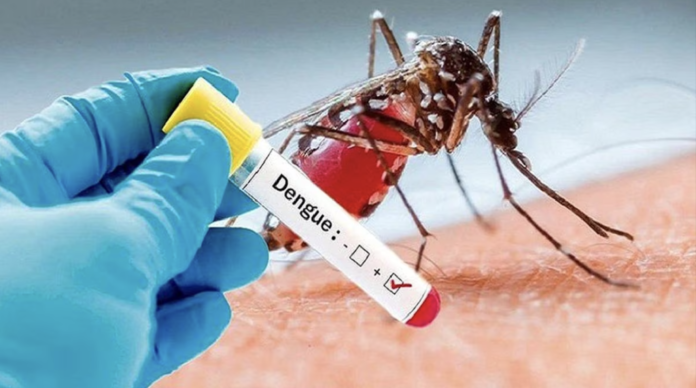Srinagar: Jammu and Kashmir has begun witnessing the return of dengue, with 23 confirmed cases reported so far this year.
According to officials, 20 cases have emerged from the Jammu division, while three cases are from other states. Notably, no case has been reported from the Kashmir division as yet.
State Malariologist Dr D. J. Raina, speaking to KNO said that although the figures remain low, the public must adopt a proactive approach in the absence of a vaccine. “Panic is unnecessary, but vigilance and preventive steps are crucial to curb the spread of this painful disease,” he said.
He added that despite a significant increase in dengue testing this year, the number of positive cases remains relatively low. “If people follow preventive guidelines, we can keep this vector-borne disease under control,” Dr Raina emphasised.
Authorities have already started their dengue control efforts across the UT. Measures include the deployment of bio-larvicide fish, extensive fogging and spraying, and a wide-reaching awareness campaign through print, electronic, and social media platforms. Miking and community outreach are also being used to promote safe practices.
The malariologist stressed the importance of eliminating mosquito breeding grounds. “People should avoid storing water in open containers and ensure regular cleaning of domestic water tanks. Solid waste should be properly disposed of and artificial water-holding containers removed,” he said.
He encouraged the use of insecticides in outdoor water storage units as an additional safeguard.
Highlighting the role of the Aedes mosquito, the primary vector for dengue, Dr Raina said it thrives in urban habitats and typically breeds in man-made containers such as discarded tires, mud pots, buckets, and stagnant water sources.
“This mosquito is most active during early morning and late afternoon hours. People must wear clothes that reduce skin exposure and use mosquito repellents,” he advised.
To manage potential outbreaks, each district hospital has been equipped with dedicated dengue wards, with at least 20 beds earmarked for dengue patients. Testing facilities are fully functional and accessible at the district level.
Patients testing positive are advised to take complete rest, stay well-hydrated, and consume a nutritious diet rich in fruits and vegetables.
The State Malariologist strongly warned against self-medication, particularly the use of painkillers like aspirin or ibuprofen, which can worsen bleeding tendencies in severe cases of dengue.
Typical symptoms of dengue include high fever, severe headache, eye pain (especially behind the eyes), muscle and joint pain, skin rashes, nausea, and vomiting.
In 2024, J&K recorded approximately 7,000 dengue cases. The year 2023 saw 6,403 cases, and 2022 recorded the highest ever—8,269 cases with 18 deaths. In comparison, earlier years saw lower figures, including just two cases in 2009, zero in 2010, and gradual increases in subsequent years.
Dr Raina appealed to the public to actively cooperate with health authorities. “Cleanliness in and around homes, schools, and workplaces is key. Eliminate stagnant water, cover your body to avoid mosquito bites, and use nets while sleeping,” he said. (KNO)

